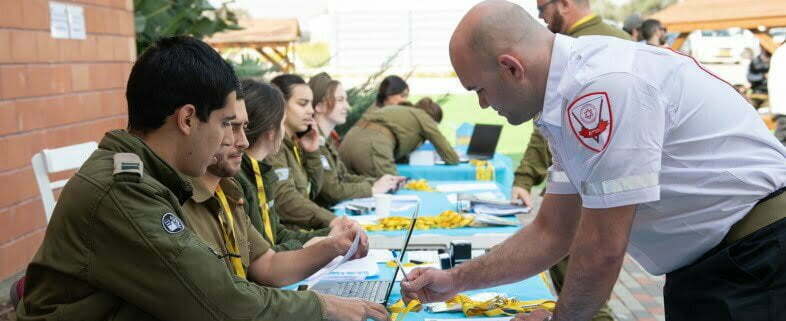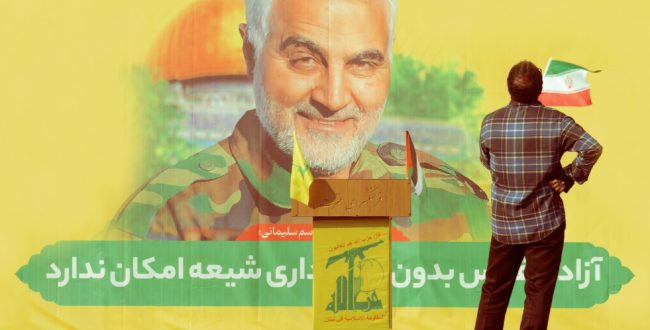In discussions regarding the way world governments have handled the Coronavirus, security scholars have noted the “securitization of Coronavirus” (securitization in its security meaning, not in its financial meaning). This coping mechanism is the continuation of a trend that has developed in the way Western states have dealt with epidemics over the last few years – a trend that, in short, can be referred to as the securitization of health.
Coined in the 80s by the Copenhagen School of security studies, securitization is a process in which leaders frame an explicit civil problem, such as immigration, crime, natural disasters, etc., as a problem that constitutes an exceptional security threat. Consequently, decision makers and experts work to convince the public, via a complicated rhetorical process, that in order to deal with the problem, special actions must be taken in a way that places the issue beyond normal politics. This move allows overriding human rights and civil liberties, or bypassing normal democratic procedures. This way of handling things may even devolve into taking emergency measures, providing governments with the legal means to impose extraordinary measures. This is also the case regarding the Corona crisis.
Israel is not exceptional in this sense. Militarized terminology was used in the battle against the virus. Justifying emergency measures, Prime Minister Netanyahu said that Israel is in “a war against an invisible enemy.” Other world leaders have echoed a similar tone. However, despite the fact that in other countries soldiers were also deployed to maintain the new order, relative to Western democracies, the process in Israel is characterized by a much greater involvement of the security apparatus in general, and the army, in specific: the National Security Council is managing the crisis; Homefront Command established the “Corona Hotels”, manages them, and helps run nursing homes; soldiers were attached to police units, enforcing the lockdown, and battalions were deployed to Bnei Brak in order to help the population, but also to police it; military expertise was recruited to develop the tools to map the phenomenon, regulate it, and find various ways to deal with it; the General Security Service was mobilized to track the cell phone activity of confirmed coronavirus cases, and the Mossad was recruited to acquire medical equipment.
On the face of it, the reason for this is that the security establishment in Israel remains powerful, and so it is able to set up resources – human, technological, logistical and managerial – towards the management of the crisis. But this perspective does not take into account other aspects, most importantly, the legitimization of the process. The legitimization of the securitization of health can be explained by the feeling of fear that leaders provoke, thereby inducing the Israeli public, similarly to the public in other countries, to accept the limitations of civil rights. In the Israeli reality such measures are also supported by the emergency regulations that have remained in force since the state’s establishment in 1948, in addition to the high public trust in the security agencies, which makes it hard to consolidate opposition to their activities. However, in order to understand the level of the legitimization of securitization in general, we must look how normalization mechanisms of securitization operate.
The National Security Council is discussing it? It must be a security issue!
The framing of the epidemic as a security issue began to develop the moment the management of the crisis was handed over to the National Security Council without any public discussion. According to the law that established it, the Council is “to be responsible, on behalf of the Prime Minister, for the inter-organizational and inter-ministerial staff work on matters relating to foreign affairs and security.” Meaning, if the Council coordinates an activity it is a sign that the issue is a security issue. The Knesset Special Committee (headed by MK Ofer Shelah) which discusses the handling of the Coronavirus, established that the National Security Council is not qualified for this assignment because its organizational capabilities are not preferable to any other administration’s capabilities. Nevertheless, the committee did not criticize the very essence of the idea that the Corona crisis be managed as a security issue. Even if the National Security Council had functioned effectively, wouldn’t there still be some room for criticism? The parliamentary committee even contributed towards framing the virus as a security issue by calling for the establishment of a publicity campaign which would mobilize a military cast, such the IDF Spokesperson, and the Homefront Command. In doing so, the Committee ignored a significant problem: the issue is not just what is the source of knowledge mobilized by the government, but also what is the source of authority of this knowledge, if not the formal authority, then certainly the symbolic authority.
Furthermore, from the moment military journalists began covering the Corona crisis, the free press has also played its part in promoting securitization. The very fact that this section of the media dealt with it gave legitimacy to its framing as a security issue- as if it goes without saying. Later, the Institute for National Security Studies (INSS), which is an independent research institute (and affiliated with Tel Aviv University) began analyzing the Corona crisis. In doing so it reinforced the perception that the health crisis is a security issue. Even though it recruited experts to do its analysis, the institute has no established expertise in public health. But the tone that the institute took was one of security, as can be seen by framings such as “War Game” and “From Containment to Victory.”
Defining the battle against an epidemic as a war frames its treatment as a security issue, gives security experts the authority to deal with it, thus reinforcing the security framing and so further legitimizing the use of irregular methods. Israel’s security expertise in controlling Palestinian population in the West Bank has thus been exported for the sake of the battle against the epidemic, and so, any person who carries the virus can be potentially seen as a sort of “terrorist”. Even Israeli solidarity is contrived from the top down, as in war. There is no greater expression of this than the virtual collective Seder initiated by Keshet’s Channel 12. The solidarity surrounding Corona in Europe such as the singing from balconies in Italy, grew spontaneously, on a communal level, while the Israeli local community activities were initiated top-down, as that is the way the leadership leads the (Jewish) nation into war.
The damage caused by securitization is not just the acceptance of the General Security Service’s monitoring, or the deployment of soldiers on the streets during a time of crisis. One can assume that some of the means of control will remain in place even after Corona, for indeed the nature of a crisis like this is that it strengthens the ability of the government to control in the long term – a sort of “rachet effect”- once a policy is implemented, it’s hard to reverse. The damage done is in stifling the public debate surrounding the question of what the correct policy is. From the moment the event was framed as a security event, the agenda was dominated by the official approach alone. Not only did the discourse not encourage listening to other opinions, based on public health knowledge, but it also marginalized those opinions, in the style of “silence, we’re shooting,“- a tone that characterizes public behavior when war breaks out. The dominant discourse surrounding securitization is one that suspends deliberative democracy- not necessarily democratic procedures, but rather, the cultural essence of democracy. Therefore, it stands to reason that there will be long term damages in the areas of health, economy, society and culture.
















